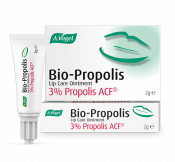An introduction to the causes of cold sores
Cold sores are small fluid filled blisters which appear on the face around the mouth. They affect approximately 20% of the UK population. Cold sore symptoms include tingling at the initial stage of infection and pain when the sore fully develops.
Cold sores are caused by the herpes family of viruses. They are a recurrent problem and the virus causing the problem can be triggered (re-activated) by a number of factors.
This page describes the causes and the triggers for cold sores. For other information, read more about cold sore symptoms and cold sore treatments.
Causes of cold sores
Cold sores are caused by the Herpes Simplex Virus. There are two strains of this virus:
- Herpes Simplex Type 1 (HSV-1)
- Herpes Simplex Type 2 (HSV-2)
HSV-1 is the strain which causes cold sores and is carried by over 80% of the population. HSV-2 can also cause cold sores but this is extremely rare - this strain is mainly associated with genital herpes.
The first time a person comes into contact with HSV-1 is known as the primary infection. This can and often happens during childhood or during early teens and does not tend to cause any symptoms.
Following the primary infection, HSV-1 lies dormant or inactive in the body but has a habit of lying within or near to nerve cells. The cold sore virus can lie in this state for years or even decades, becoming active following an encounter with a ‘trigger’.
The virus is reactivated, leading to what scientists term the ‘secondary infection’ and the appearance of a cold sore. Hence, all cold sores are secondary infections. As the virus causes inflammation close to nerves, one of the most prominent cold sore symptoms, apart from the embarrassment of a prominent sore on the face, is pain.
Cold sore trigger factors
There are many trigger factors known to cause a reactivation of the cold sore virus. These include:
- Emotional or psychological stress
- Fatigue or tiredness
- Menstruation
- Exposure to sunlight or ultraviolet lamps
- Viral infections such as those causing the cold or flu
- Other types of acute (sudden) or chronic illness
- Operations on the face or dental work
- Minor damage or injury to an area affected by cold sores in the past eg caused by shaving, cuts or scratches
- Feeling ‘run down’ or unwell – indicating the immune system is weak
- Chapped or dry lips
Many of these triggers have one thing in common – the immune system becomes weakened, which in turn causes a reduction in the body’s natural defence mechanism, giving the viruses a greater chance to ‘come to live’ and become active again.





 Looking for our products in a store near you?
Looking for our products in a store near you?

